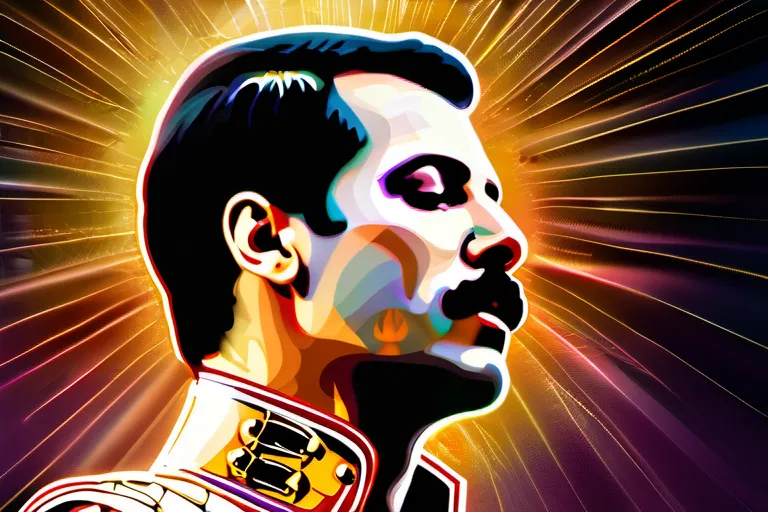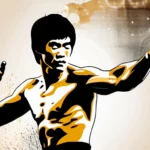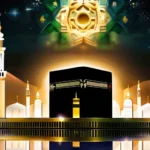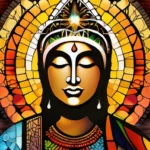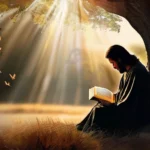Explore the fascinating world of Freddie Mercury’s religious beliefs, from his Zoroastrian heritage to his spiritual eclecticism.
Freddie Mercury, the legendary lead vocalist of Queen, was a complex and enigmatic figure. One aspect of his life that has long intrigued fans is his religious beliefs. In this article, we delve into the unique spiritual journey of Freddie Mercury, exploring his Zoroastrian heritage, his eclectic spiritual practices, and the role religion played in his life.
Freddie’s Zoroastrian Roots
Freddie Mercury’s spiritual journey began at the heart of his Zoroastrian roots, much like planting a seed that would grow into a rich and diverse tree of beliefs. Born in 1946 in Zanzibar to Parsi parents, Freddie was steeped in a religion that emphasizes good thoughts, words, and deeds—much like choosing between light and darkness in the vast cosmos.
Zoroastrianism is often described as monotheistic with an emphasis on dualism, where one must continually choose the path of truth over falsehood. For Freddie, this dualistic perspective may have shaped his early understanding of right and wrong, good and evil—a framework that perhaps influenced his complex personality and the dichotomies he explored in both his life and music.
The Zoroastrian faith’s emphasis on good thoughts (Humata), good words (Hukhta), and good deeds (Hvarshta) might have provided Freddie with a moral compass. His journey through life could be seen as a reflection of this philosophy, moving from the shadows towards the light, much like a moth drawn to flame.
However, Freddie’s spiritual path was not just about his Zoroastrian heritage; it was also a quest for deeper understanding and personal fulfillment. This led him on a journey that included exploring other faiths such as Buddhism, Hinduism, and Sufism—each offering its own unique perspective on the nature of existence.
Imagine walking through a forest, where every tree represents a different belief system. Each offers a different shade of green, each has its own story to tell. For Freddie, these beliefs were not just intellectual exercises but deep personal explorations that enriched his soul and inspired his artistry. His music often reflected this eclectic mix of influences, blending diverse cultural and spiritual themes into a harmonious whole.
Freddie’s journey through various faiths was like navigating the labyrinth of life, where every turn led to new revelations and understandings. He sought not just answers but experiences, truths that resonated on a personal level, much like finding solace in the stillness of a silent night or the warmth of a sunrise.
As we explore Freddie’s spiritual journey, it becomes clear that his Zoroastrian roots laid the foundation for this exploration. Just as a river finds its path through diverse landscapes, so too did Freddie find his way through various faiths, each one adding depth and color to his rich and multifaceted soul.
Freddie’s Spiritual Eclecticism
Freddie Mercury’s spiritual journey was as eclectic and diverse as his music. He didn’t confine himself to one religious path but rather delved into various faiths, blending them in a way that enriched both his personal life and his artistry.
Imagine a painter with an unlimited palette, each color representing a different spiritual tradition. For Freddie, Buddhism offered a serene canvas of mindfulness and compassion, while Hinduism provided vibrant strokes of devotion and mythology. Sufism, with its mystical and devotional elements, served as the brush that painted his music with depth and emotion.
How did these diverse beliefs influence his work? Consider how the tranquility of Buddhist meditation might have influenced the soft, reflective melodies in ‘Barcelona.’ Or perhaps the tales from Hindu epics inspired the grandeur and drama of ‘The Miracle?’ And what about Sufism’s emphasis on love and spirituality—could that explain the mystical undertones in ‘I Want to Break Free?’
Freddie’s spiritual eclecticism was not just a personal exploration but also a reflection of his belief in the universal nature of these beliefs. He saw religions as different paths leading to the same mountain, each offering unique perspectives and insights.
In this journey, Freddie Mercury became more than just an artist—he became a bridge between cultures and faiths. His music transcended religious boundaries, uniting people through its universal themes of love, freedom, and self-expression. Through his eclectic spiritual practices, he found a way to connect deeply with his soul and express the most profound aspects of human experience.
Freddie’s Connection to the Occult
Freddie Mercury’s fascination with the occult was like a secret garden hidden within his vast spiritual landscape, where he explored astrology, tarot cards, and mysticism alongside his eclectic religious practices. His mind roamed freely through the realms of magic and mystique, much like a butterfly flitting between different flowers.
How could one explain Freddie’s interest in such esoteric subjects? Was it simply a fascination with the mysterious or did it serve as a deeper connection to the divine? Could astrology have influenced his musical timing and composition? Perhaps the tarot cards he played held more than just whimsical meanings, revealing insights into his future endeavors or personal life.
The integration of these occult practices with his spiritual eclecticism was akin to blending different paints in an artist’s palette. Each shade added a unique hue to the canvas of his beliefs. For Freddie, astrology might have given him a sense of destiny and purpose, while tarot cards offered glimpses into the future or guidance through life’s uncertainties.
Mysticism often seeks answers beyond conventional means, and for Freddie, it may have been another way to delve deeper into the spiritual realms he so revered. The metaphorical journey through astrology and tarot could be seen as a map leading him closer to understanding his place in the universe and his relationship with the divine.
Was there a hidden language or code that these practices revealed, allowing Freddie to communicate on a deeper level with his inner self? Did they provide a sense of empowerment or control over the unknown? These questions linger as we explore the intricate layers of Freddie Mercury’s spiritual journey, revealing the complex tapestry of beliefs and practices that shaped his life and art.
Freddie’s Relationship with God
Freddie Mercury’s relationship with God was as complex and multifaceted as his music itself. Born into a Zoroastrian family, he carried the weight of ancient Persian beliefs and traditions in a world that often seemed to reject them. How did these roots shape his personal spiritual journey? Was there something deeper than just cultural heritage at play?
One can’t help but wonder if Freddie’s deep-seated connection to Zoroastrianism, with its emphasis on dualism between good and evil, influenced his own perception of the world. His songs often reflected a dichotomy that mirrored this belief system—like “We Are the Champions”, where the battle is not just against other bands but also against internal struggles. Could these themes be a reflection of his personal battles?
Moreover, Freddie’s spiritual eclecticism suggests he wasn’t confined to any single religious tradition. He spoke of a belief in multiple gods and spirits, which could be seen as a way to embrace a broader spectrum of divine influences. This openness aligns with the idea that spirituality is not about dogma but about personal experience and connection.
Freddie once mentioned, “Music has always been my religion.” But what if his faith in music was merely an extension of his spiritual beliefs? Could his lyrics be seen as hymns to a higher power, even if that power took many forms?
The role of God, or the divine, in Freddie’s life wasn’t just about worship; it was about understanding and navigating the complexities of existence. His belief system, like the music he created, sought answers in both the light and the shadow, embracing contradictions rather than resolving them.
The Role of Religion in Freddie’s Music
Freddie Mercury’s musical journey was as complex and multifaceted as his personal life, and his religious beliefs played a significant role in shaping both. How did his Zoroastrian heritage influence his music? Could the themes of spirituality and mysticism found in his lyrics be seen as a reflection of his deep-seated search for meaning?
Freddie’s upbringing in a Zoroastrian family provided him with a unique perspective on life, but it wasn’t until he embraced a more eclectic approach to spirituality that his music truly reflected his inner world. His exploration of various religious and spiritual concepts—ranging from the ancient Persian faith of Zoroastrianism to Eastern philosophies like Buddhism—brought a rich tapestry of beliefs into his artistry.
Consider the lyrics of songs like ‘The Show Must Go On’ or ‘These Are the Days of Our Lives.’ Could these be metaphors for Freddie’s journey through life, infused with a sense of spirituality and mysticism? Was he using his music as a vehicle to explore the deeper questions about existence that had long occupied him?
Freddie’s lyrics often spoke of transformation and transcendence, much like a spiritual awakening. Could we see his music as a kind of modern hymnal, where each song is a prayer or a meditation on life’s mysteries? The mystical quality in songs such as ‘The Miracle’ might hint at his own quest for understanding and enlightenment.
Moreover, the way Freddie wove together diverse cultural elements into his music suggests that he saw spirituality not as a rigid framework but as an expansive exploration of the human experience. His openness to different religious practices and beliefs allowed him to create a body of work that resonated with audiences from all walks of life.
How does this spiritual eclecticism manifest in his live performances? Could it be argued that Freddie’s concerts were not just about entertaining but also about offering a space for spiritual reflection and connection among his audience? His ability to unite people through music, regardless of their religious or cultural backgrounds, speaks volumes about the universal language of spirituality.
In essence, Freddie Mercury’s religious beliefs were woven intricately into the fabric of his music, creating a rich layer of meaning that continues to inspire listeners today. Through his lyrics and performances, he offered a glimpse into his personal spiritual journey, inviting us all to embark on our own quests for understanding and meaning.
Freddie Mercury: A Spiritual Icon
Freddie Mercury’s spiritual journey was as complex and multifaceted as his music. Born into a Zoroastrian family, he was steeped in a tradition that reveres fire and light as symbols of truth and purity. Yet, his soul seemed to yearn for something more, something that transcended the boundaries of any single faith.
Was Freddie Mercury’s journey a quest for enlightenment, much like a pilgrim wandering through different spiritual landscapes? His openness to various beliefs and practices—ranging from Hinduism to Christianity—speaks of a seeker who was willing to embrace the vastness of human spirituality. This eclecticism in his beliefs mirrors his music, which often blended genres and styles without fear of contradiction.
Could it be that Freddie’s religious beliefs were not just personal, but also a way for him to connect with his audience on a deeper level? His openness about his Zoroastrian roots, coupled with his spiritual musings in songs like ‘The Miracle’ and ‘One Vision,’ suggest a man who was more than just a performer. He was a bridge between the sacred and the profane, weaving together threads of faith into a vibrant tapestry that resonates to this day.
How did Freddie’s unique blend of spirituality influence his fans? For many, his songs became not just music but also a form of prayer or meditation. In a world often divided by religious strife, Freddie Mercury’s inclusive approach to spirituality served as a unifying force. His belief in the power of love and acceptance transcended dogma, offering solace and hope during challenging times.
Reflecting on his legacy, it’s clear that Freddie Mercury’s spiritual journey was not just about personal growth but also about spreading a message of unity and compassion. In an era where divisiveness often overshadows cooperation, his influence reminds us of the power of inclusive spirituality to bring people together, fostering a sense of global community.
As we continue to explore Freddie Mercury’s spiritual iconography, it becomes evident that his journey is as profound as it is inspiring. From Zoroastrian roots to an eclecticism that defied traditional boundaries, his beliefs reflect a quest for the divine that continues to resonate with audiences worldwide. In honoring this legacy, we not only celebrate his music but also cherish the light of spiritual exploration that he illuminated.
Conclusion
 Freddie Mercury’s religious beliefs were as diverse and captivating as his music. From his Zoroastrian roots to his exploration of various faiths, Freddie’s spiritual journey was a testament to his open-mindedness and curiosity. This article serves as a tribute to the man behind the myth, shedding light on an often overlooked aspect of his life.
Freddie Mercury’s religious beliefs were as diverse and captivating as his music. From his Zoroastrian roots to his exploration of various faiths, Freddie’s spiritual journey was a testament to his open-mindedness and curiosity. This article serves as a tribute to the man behind the myth, shedding light on an often overlooked aspect of his life.

